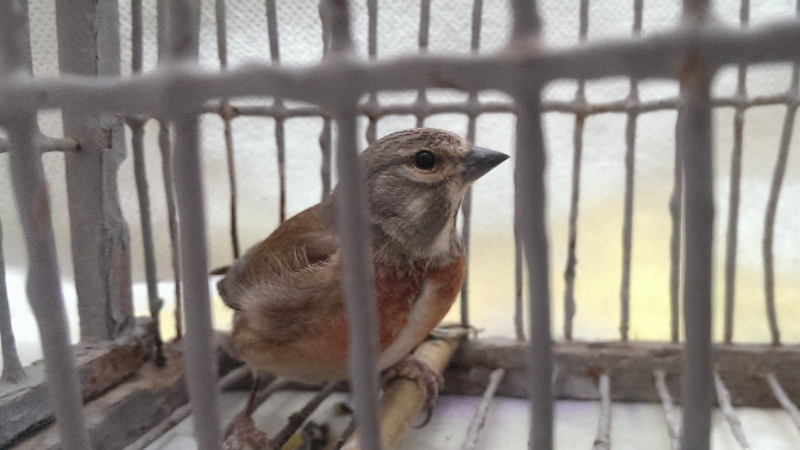The government used the Ornis Committee, a supposedly-independent committee on hunting and trapping matters, to rubber-stamp its decision to open a finch trapping season that jars with EU law.
While this process is not new, an investigation by The Shift has now found evidence that suggests that Gozo Minister Clint Camilleri and the so-called Wild Birds Regulation Unit (WBRU), which falls under his ministry, used the committee to create a charade of process and legitimacy.
The two-month trapping season opened on 20 October, and a spokesperson for the EU Commission has since told The Shift that the Commission has written to the Maltese government “to request clarifications.”
Birdlife, who have one member out of seven on the Ornis Committte, have long complained the committee being a rubber stamp due to the government’s influence on its appointees.
Prime Minister Robert Abela transferred the WBRU from the Environment Ministry to the Gozo Ministry last January.
Camilleri, who is reportedly a bird trapper, then made Richard Lia, also reportedly a bird trapper, the chief of the WBRU. Lia also serves as secretary of the Ornis Committee.

Illegal trapping in Munxar. Photo: Birdlife
Bird trapping is banned in EU law and, on 21 June 2018, the European Court of Justice held that Malta was in breach of EU law by opening a trapping season for seven species of songbirds between 2014 and 2017.
Yet the Birds Directive provides the possibility of applying a derogation to trap small numbers for certain reasons, including research.
On 14 August, Camilleri wrote to the Ornis Committee asking the committee to “discuss and subsequently provide advice to the government regarding the possibility of a research project on seven species of songbirds” that would necessitate derogation from EU law.
The proposal was put on the agenda of 26 August, but in the meantime, the government sent letters to bird trappers with details and application form of the “research project” – that trappers would have to trap, ring, and release the birds – specifying that completed applications could be submitted in Maltapost branches between 24 to 29 August.
The date was later shifted to 31 August to 5 September.
The letter was sent “without prejudice to Ornis Committee’s recommendation and government’s decision”.
The Ornis Committee on 26 August voted in favour of the proposal as well as all amendments brought by the federation of hunters and trappers, and committee secretary Lia, whose unit had already sent the application forms to thousands of trappers, wrote a letter to his boss, Minister Camilleri, to inform him that the committee had voted in favour of the proposal by 5 to 2 votes.
Only the Birdlife representative voted against, while the representative of the Environment and Resources Authority abstained.

A patchwork of at least 3,800 bird trapping sites set up after the government reopened finch trapping amount to wholesale degradation of landscapes. Photo: Birdlife
The season has since been opened as planned for two months, starting on 20 October, with the number of trapping licences issued, including those for golden plover and song thrush, amounting to 3,800.
Birdlife CEO Mark Sultana has described the trapping season under the guise of research as “a sick joke.”
It certainly lacks standard research parameters. Research is normally carried out by a recognised institute or body, and the research is designed, including research stations, according to established scientific parameters. For example, the countryside might be divided into grids for research purposes, and research stations located by scientific design.
Instead, the WBRU has issued a “research licence” to any trapper who applied for it, with the “research” taking place wherever each of those trappers happens to have his trapping site.
This randomness means you could have areas with high density of trappings sites, and other areas (such as agricultural land) with sparse sites. This would in theory make the data unreliable. So do bird lures, which warp any result – trappers are permitted to use electronic bird lures as well as live birds to attract other finches.
Another factor is the incidence of illegal trapping, which is expected to be widespread – few people think that most trappers would not be spiriting most birds caught to their aviaries.
Although the law setting the derogation establishes a minimum level of enforcement that seems acceptable on paper, the reality on the ground has proven to be different: small, roving teams of Birdlife and CABS always manage to document far more illegal hunting and trapping than found by dozens of police that ought to be patrolling the countryside at any time.
Even during the closed trapping season in spring, when any active trapping site would be illegal, Birdlife recorded widespread illegal trapping.
The spokesperson for the EU’s Environmental Commissioner, Vivian Loonela, acknowledged widespread scepticism about the legality of the “research project” by pointing out that “the monitoring and enforcement of EU environmental law is the primary responsibility of Member States.”
She added that national courts are ordinarily responsible “to contribute effectively to enforcing [EU law] in individual cases, but the Commission remains ready to take action whenever necessary.”
“The Commissioner has recently written to the Maltese authorities to request clarifications,” Loonela added. “The Commission is now assessing the explanations provided and will follow up as appropriate.”
A spokesperson for Birdlife told The Shift when contacted that the NGO is “evaluating” the possibility of launching legal action in the Maltese courts.













